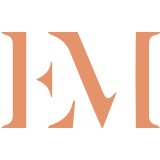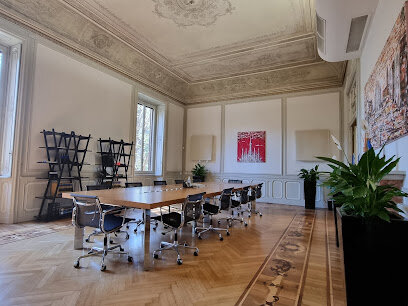Best Communications & Media Law Lawyers in Italy
Share your needs with us, get contacted by law firms.
Free. Takes 2 min.
Or refine your search by selecting a city:
List of the best lawyers in Italy
About Communications & Media Law in Italy
Communications & Media Law in Italy encompasses the regulation and oversight of information distribution through various media channels such as television, radio, newspapers, and digital platforms. It is a field of law that blends several legal disciplines including intellectual property, freedom of speech, and public policy. In Italy, this area of law is governed by both national legislation and European Union directives, ensuring that the dynamics of media operation align with evolving technological standards and societal values.
Why You May Need a Lawyer
There are several situations where individuals or businesses might require legal assistance in Communications & Media Law. These situations can include disputes over broadcasting rights, cases of defamation, censorship issues, infringement of intellectual property rights, and compliance with regulatory standards. Legal expertise can also be vital for navigating complex advertising laws or handling the legal implications of content distributed through digital platforms.
Local Laws Overview
Italy adheres to several key laws in the domain of communications and media, which align with EU regulations. The main body governing these laws is the Autorità per le Garanzie nelle Comunicazioni (AGCOM), which regulates aspects like net neutrality, mobile communications, and broadcasting. The Italian Press Law (Legge sulla Stampa) directly addresses issues related to defamation and the rights of reply for individuals. Moreover, the Italian Data Protection Authority ensures compliance with the General Data Protection Regulation (GDPR), which is critical for media outlets handling and processing personal data.
Frequently Asked Questions
What is the role of AGCOM in Italy?
AGCOM (Autorità per le Garanzie nelle Comunicazioni) is the regulatory authority responsible for overseeing the telecommunications and broadcasting sectors in Italy. It ensures compliance with media laws, promotes competition, and protects the rights of consumers and businesses.
How does Italian law protect against defamation in the media?
Italian law treats defamation as a crime, and it is subject to criminal and civil penalties. The Italian Press Law establishes the right to defend one's reputation against false or damaging statements made in the media.
Are there specific laws for digital content in Italy?
Yes, digital content in Italy is subject to rules regarding data protection, privacy, and copyright, consistent with EU directives such as the GDPR and the Directive on Copyright in the Digital Single Market.
What obligations do broadcasters have under Italian law?
Broadcasters in Italy must adhere to public service obligations, which include content diversity, protection of minors, and adherence to advertising standards. AGCOM monitors compliance with these requirements.
How are advertising laws regulated in Italy?
Advertising laws in Italy are tightly regulated, with specific rules against misleading advertising and requirements for transparency. Both AGCOM and the Italian Competition Authority (AGCM) enforce these regulations to protect consumers.
Can foreign media companies operate in Italy?
Yes, foreign media companies can operate in Italy but must comply with the same regulatory standards as domestic companies, including local programming quotas and adherence to European media laws.
What should I do if I face an intellectual property dispute related to media?
Consulting a lawyer specialized in intellectual property law is crucial in such cases. They can provide guidance on protecting your content or defending against alleged infringement.
How does GDPR affect media companies in Italy?
Media companies must comply with GDPR, which governs the processing of personal data within the EU. This includes obtaining consent for data usage and ensuring adequate data protection measures are in place.
What is the "right to be forgotten" and how is it applied in Italy?
The "right to be forgotten" allows individuals to request the removal of personal data from search engines under certain conditions. This right is recognized within the framework of GDPR, and Italian law enforces it accordingly.
Are there special provisions for press freedom in Italy?
While Italy upholds the principle of press freedom, this is balanced by laws that protect individuals from libel and defamation. Press freedom is respected and enhanced through journalistic ethics and professional standards.
Additional Resources
Several organizations and resources can be helpful for someone seeking guidance in Communications & Media Law in Italy. These include:
- The Autorità per le Garanzie nelle Comunicazioni (AGCOM)
- The Italian Data Protection Authority (Garante per la Protezione dei Dati Personali)
- The Italian Competition Authority (Autorità Garante della Concorrenza e del Mercato, AGCM)
- Legal journals and publications focusing on media law
- Professional associations like the Italian Communications and Media Law Society
Next Steps
If you require legal assistance in Communications & Media Law, consider consulting with a lawyer who specializes in this field. It's important to gather all relevant documents and information before your consultation to ensure comprehensive legal advice. You can also utilize resources from AGCOM or other regulatory bodies to better understand your rights and responsibilities under Italian law. Additionally, engaging with legal associations or attending seminars on media law might provide further insights and support.
Lawzana helps you find the best lawyers and law firms in Italy through a curated and pre-screened list of qualified legal professionals. Our platform offers rankings and detailed profiles of attorneys and law firms, allowing you to compare based on practice areas, including Communications & Media Law, experience, and client feedback.
Each profile includes a description of the firm's areas of practice, client reviews, team members and partners, year of establishment, spoken languages, office locations, contact information, social media presence, and any published articles or resources. Most firms on our platform speak English and are experienced in both local and international legal matters.
Get a quote from top-rated law firms in Italy — quickly, securely, and without unnecessary hassle.
Disclaimer:
The information provided on this page is for general informational purposes only and does not constitute legal advice. While we strive to ensure the accuracy and relevance of the content, legal information may change over time, and interpretations of the law can vary. You should always consult with a qualified legal professional for advice specific to your situation.
We disclaim all liability for actions taken or not taken based on the content of this page. If you believe any information is incorrect or outdated, please contact us, and we will review and update it where appropriate.
Browse communications & media law law firms by city in Italy
Refine your search by selecting a city.














